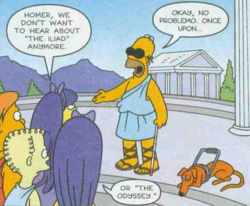-Ionian Sea: the river of the bottom of Greece (south of the Adriatic Sea.)
 |
| The Adriatic, Aegean and Ionian Sea |
-Greece is a mountainous peninsula (3/4 of mountains cover Greece)
-The Greeks had many skills: sailors and shipbuilders, farmers, metal workers, weaver potters.
-Fertile valleys cover a quarter of the peninsula.
-Arable: 20% - this is good farming.
-Ancient Greeks diet: grains, grapes, olives
-Lack resources led to colonization. ** IMPORTANT
-In Ancient Greece, the temperature ranged in the mid 40s in winter, and 80s in summer. This is very important because it led them to go outside more and that made them athletic, healthy and fit. (this soon would lead to him creating the Olympics.)
Mycenaean:
- their influence began 2000 BCE.
- located on the rocky ridge and they were protected but a gigantic 20 foot thick wall.
- their kings dominated Greece from 1600-1200 BCE (about 800 years!) - they controlled trade in the region.
- In 1400 BCE - they invaded Crete (the island South of Greece) and absorbed Minoan culture and language.
- in 1200 BCE, the mysterious 'sea people' began to invade.
- they attacked Egypt too.
- burnt palace after palace.
- Dorian's weren't as advanced, they didn't care about trade or writing.
- one of the reasons the Dorian's were called the mystery "sea people" and they were kind of mysterious, because they didn't care about writing, when they took over they completely ditched the practice of writing.
- writing disappeared for 400 years.
- there's no record because of this.
- Greek oral tradition: stories passed on by word of mouth.
- He was alive at the end of the "Greek Dark Ages".
- He composed stories about the Trojan Wars.
- This is around the time writing and or stories passed down to family generations were coming into practice again.
- Two of his stories were: The Ilad - the last conquests of the Trojan War (750-700 BC); The Odyssey - odyssey attempt to return home being thwarted by the god of the sea because he's jealous ( 12,110 lines of dactylic hexameter - in rhythm )
| This Homer! |
 |
| Not this Homer... |
-The Greek gods 'interacted' with humans and had human character traits.
-Cyclops: gigantic beasts with one eye in the middle of their head that was talked about in the great story The Odyssey. ( see the picture below )

Homer didn't exist?!:
- The Homeric Question: people don't know if he actually existed because it was the Greek Dark Ages.
- For the longest time, historians thought that The Trojan War didn't happen, but they found that it was real, the ancient Greeks just made it sound more epic and cooler.
The End (:
No comments:
Post a Comment